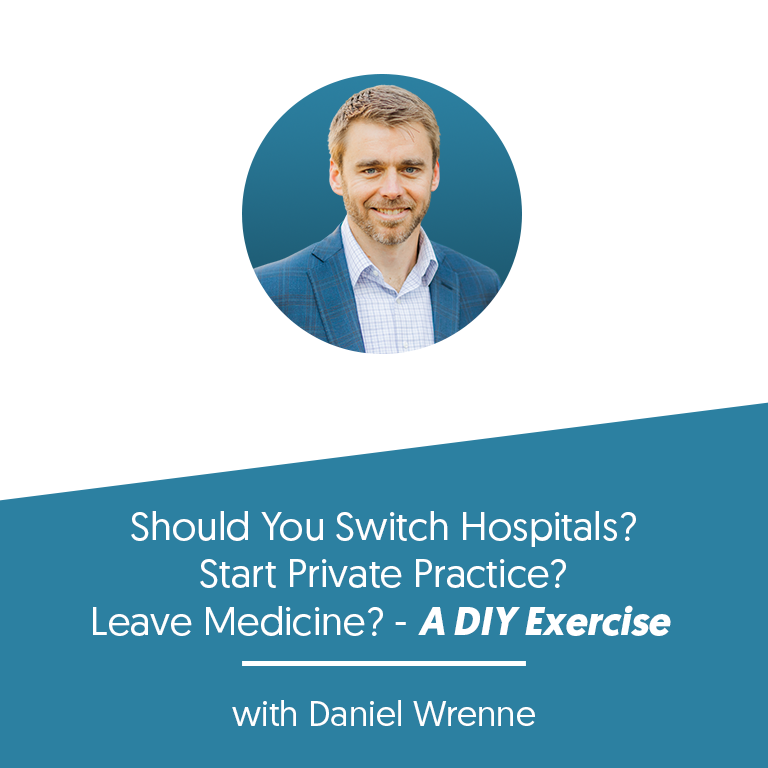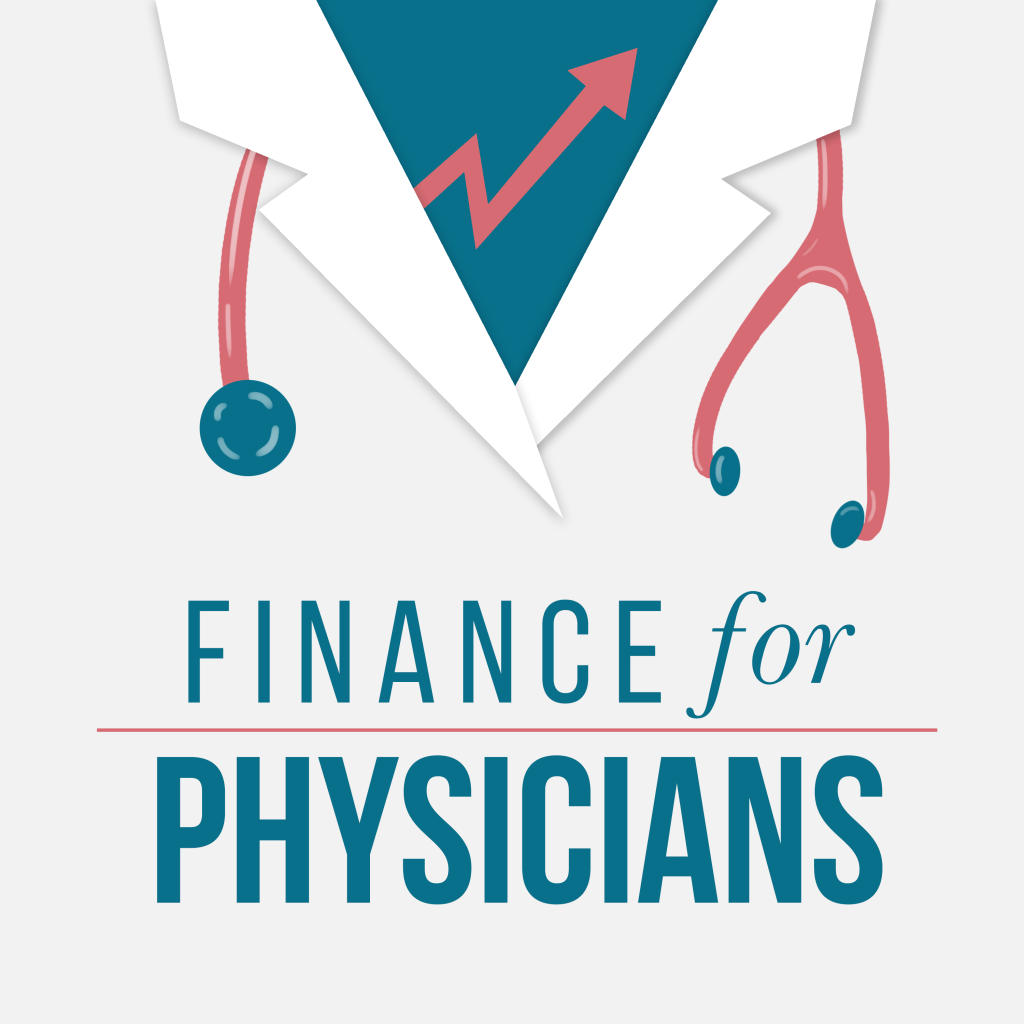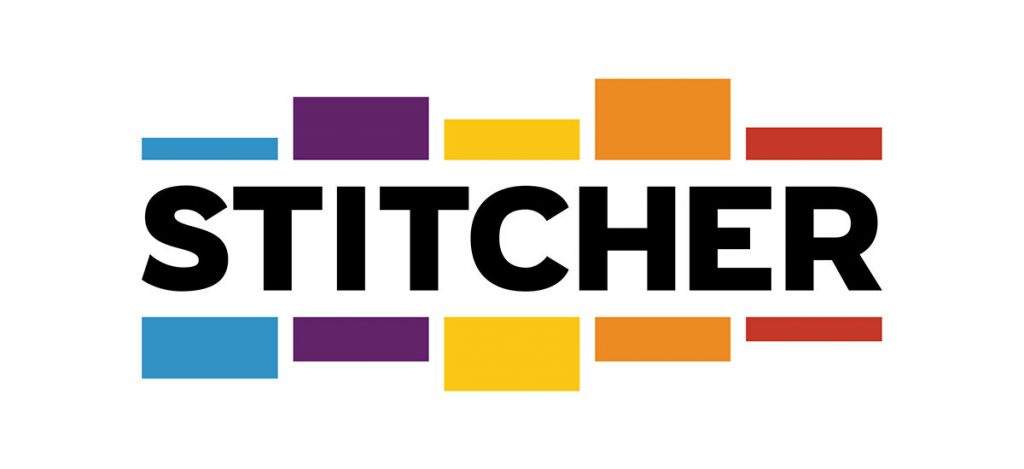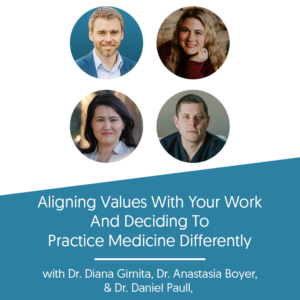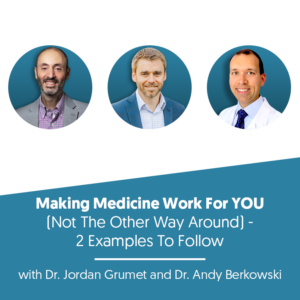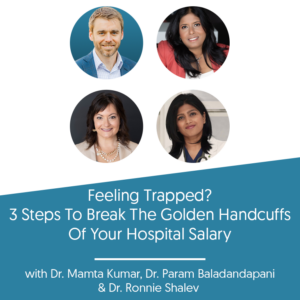Embark on a transformative journey with Daniel Wrenne, the trusted financial advisor dedicated to physicians’ financial well-being. In this compelling episode of Finance for Physicians, Daniel unravels the art of intentional living through values-centric decision-making.
Clarifying Your Values: Daniel guides you through thought-provoking questions, helping you uncover and prioritize your core values. Understand why this step is pivotal in making informed decisions across both personal and financial aspects of your life.
Full Episode Transcript:
Pablo: If you’ve been listening to the show, you know I’ve been diving into the direct care business model for physicians as a way to rebuild our American healthcare system and end the burnout epidemic. If you’re working with us as a planning client, we can help you get clarity on what it takes to get there, keep you accountable, and even give you a bunch of examples of how well this has worked for others.
But I know many of you will need more than that. You may need support doing things you’ve never had to do before, like business planning, or marketing, or even IT. And I’m sure you could probably use a partner. That’s what my friends at Freedom HealthWorks can do for you. They are the complete, direct, primary care solution for physicians that want to buck the system.
They can help you set up and run your own practice. With easy financing and support you with the business strategy, hiring guidance, technology setup, client acquisition, and even your website. If you’re curious to learn more about them, hit pause, grab your phone right now, and save this number. 317 804 1203
That’s 317 804 1203 We’ve also had their CEO on our May 2nd episode, one of their current clients on our June 13th episode, and a client of ours who just started working with them on our show that aired on July 18th. Make sure and give those shows a listen if you’re curious, but if you want to get some questions answered directly, give them a call.
They’re a great team. And once again, find out more at 317… 804 1203 and make sure to tell them I sent you.
Daniel: Hey, doc there. This is Pablo Gonzalez. I am the producer of the podcast. So don’t be alarmed. Daniel is still going to be hosting this one, but this episode’s a little bit different. Daniel is preparing right now for a keynote he’s giving at a conference that I believe a lot of you like to attend. And when he shared with me the keynote presentation that he’s giving around aligning your core values in order to make financial decisions, I was blown away by how good it was.
I actually implemented it myself and I did it with my wife this last weekend. And I thought that this would actually be really, really good to share with you. So, listen to this one a little bit differently. You can definitely hear it passively, but if you’re able to take some notes while you do it, or maybe you want to go back to it, I highly, highly recommend it.
Starts off with a story of a doctor, much like yourself, that’s trying to do the best thing for their family, and how typical financial advice kind of steered that doctor wrong. Daniel then shares the exercise that he put the doctor through in a way that you can do it yourself, and then talks about how The doctor’s decisions and ultimately financial future have been changed as a result.
So, this actually comes with a companion downloadable worksheet that you can download in the show notes. But, uh, I would love to hear what you think of this. Do you want more exercises like these that you can do on your own, that you can share with others, stuff like that? Please let us know. Shoot us an email here at the show and we will do more things like this.
But for now, enjoy!
So most of us start out with some idea of our values, but it’s really easy to get sidetracked with the how and lose sight of what’s truly most important and get into this mode of making more money and working hard and doing all the things you’ve heard you’re supposed to do. It makes sense. I’m an achievement oriented person.
I love just jumping right in into the doing. And it’s really easy to find out all the necessary steps too. For example, Google white coat investor, how to build wealth. This is a great article that comes up, that breaks down how to build wealth as a physician. And it’s, it’s a good read, but in reading this, what you’ll find is that building wealth for a physician is fairly straightforward, save at least 20 percent and invest wisely using low cost index funds.
Maybe amp it up even further by learning all the various strategies. To maximize your wealth and maybe even further by mastering the emotional component of finances. This is all good stuff and very important ingredients to building wealth, but there is a key ingredient that is missing that is absolutely necessary for reaching fulfillment.
And we’re going to talk about this more in a moment, but for now, I want to talk about the more common path. And that is doing what the world around you says you should be doing. Build wealth, buy a nice house, become a great doctor, be a great husband, have kids, do all the things, and act like it’s all perfect, even if it’s not.
As I described earlier, I’ve experienced my own version of this. It also has come up countless times in my practice, working with physician families. I started working with a younger couple, it was probably a few years ago. I’ll call them Peter and Mary. And so Peter is transitioning into practice. As you all know, uh, in this transition, income jumps a ton, and there’s a lot of things you feel pressure to catch up on in life, and there’s just a lot going on, generally speaking.
So this couple had, they had three kids, of course all the work stuff and then they’re moving to a new location. And so basically they have a ton of decisions they feel like they need to make and it’s in a relatively short period. So their, their big initial goal was to go ahead and get a home purchased and get settled there, get the family settled in the home and then kind of work on all the other things.
So when we started working together, one of the first questions I asked them was how they had come up with a target for the house budget. So they explained that they’ve already done quite a bit of homework on this. They’ve learned through white coat investor forms, that they can afford up to 2. 5 times income.
So for them, they’re going to be making about 500, 000 a year. So ends up being about 1. 25 million for them. And actually they’ve already found a home for 1. 25 million that they love and they’re under contract. So I congratulate them on finding a great house and ask them if they’d like any further input on this decision.
And so they’re feeling pretty good about it. They just want to make sure that we work it into their financial plan. Like many families we work with. Right now they feel this intense pressure to do all the things like I’ve been talking about, you know, there’s the house that we’ve already discussed.
There’s furnishing the house. There’s making sure they get a reliable car, maybe the kids stuff, paying for education, traveling, all these lifestyle things. They also want to make sure that they carve out at least 20 percent off the top to save for long term. They’ve done their homework on that too. They know that that’s important to do that, which is great.
And so basically they hired us to help them put that 20%. That they’re going to be saving to work to help them hit their long term goals. And that’s a common reason that physicians come to us. It’s like, we know we’re going to save X percentage or X dollars a month, and we’re not sure about what to do with it or how to invest it.
So we need your help. And that’s a fine starting point. And we’re completely able to rock this type of thing out all day long. And that’s just what we do in this case. Now, similar to my story, Peter started out in his profession and did all the things that they told him. He was checking all the boxes. He even took on a medical director spot.
It was doing some extra shifts and staying late. and he did all these things that they said he was supposed to do, work and also at home, like financially speaking, they were, saving what they needed to, they had the nice house, their wealth was starting to grow, so they’re feeling pretty good about their success and on the surface, things look great and they seem to feel good about it too, but over time, as we got to know them better and time went on and we learn a lot more about their values.
And so, like many people we work with, we learn that family is for sure their number one. And being a great physician for Peter is, secondary. So, when Peter was looking for a job, he looked at hospitals that, He thought we’re most, you know, relatively credible and, ended up taking the one with the highest salary offer with the hopes of providing the best possible lifestyle for his family.
So the hospital that he signed with was offering a two year guarantee and then would flip him to an RVU base compensation. So fast forward a couple of years and some bigger problems are starting to emerge. Peter’s work is becoming more and more stressful. The hospital is like, take, take, take, take, take, take all the time.
So we’re dealing mainly with Mary, and it’s obvious she is super frustrated. To compound things, they’ve already made all these lifestyle decisions, which we’ve talked about, that are, are very hard to change. So Peter feels like he must continue to work at this high level to maintain the lifestyle, and also to maintain the professional success.
And adding further insult to injury, they’re about to be moving him to this RVU setup I talked about earlier. And they’ve informed him that he, he actually needs to ramp up his production even more to stay on pace at that 500, 000 level. So he feels like he’s not able to take off the gas and maybe even needs to push it harder.
And he’s like, I don’t have the capacity to push it. And on top of that, he’s like, this is not what I signed up for. I’d like to try to find a way to retire sooner. that’s a common thing that comes up in this situation. So he starts asking us, like, can we start to plan for a earlier retirement? but that would require even more cashflow, which they don’t have.
When you’re in this type of situation, it’s, it’s very difficult to find someone you can talk to about it that might be able to help you think through possible solutions, or at least to listen, I think it needs to be someone that’s objective and trustworthy. And nonjudgmental, ideally financially literate.
Now, maybe you could talk to some colleagues, but you, you might be concerned that they might say, well, this is normal, like get used to it. Or maybe you’re thinking I could talk to the hospital. Maybe they’re going to put you in some burnout course and you don’t have any time for that. And you know, it’s just going to put all the blame on you.
Or maybe you’re thinking, well, I could talk to my friends, but what if they’re like, dude, you make. Doctor money. Like, what are you talking about? You have problems. You could also read the personal finance books, but you’re not going to really find much issue there because you’re doing all the things you’re supposed to be doing.
You save 20%, you invest it responsibly, you limited it out to two and a half times income and you’re spending what’s left over. So we end up serving the role of helping many of our clients through this type of challenge. And I think it’s probably one of the most rewarding things we do. So what is missing?
Fulfillment is not about doing all the things right. You can have the nice house, be saving plenty, and living a nice lifestyle, and be completely miserable. You can have tons of money, too, and still be miserable. I’m not trying to say that all these things in themselves are bad. Buying a nice house can be great.
Enjoying your money, too. And saving and investing is a huge deal. In fact, I’ve dedicated my professional life to helping physicians grow well. You just have to be careful to make sure you’re keeping those first things first. Because when those most important things get out of whack, it doesn’t matter how much money or stuff or success you have.
It’s miserable. Fulfillment is about living a life with actions that align with your values. So Peter and Mary’s number one value is family. And in particular, spending quality time together when they were transitioning into practice, they lost sight of that and jumped straight into the actions and doing all the right things, the house, the job, all the things.
They felt like they were doing the best thing for their family, but failed to really think through the trade offs. And view the decisions from the lens of how it actually affected their ability to spend quality time together. Instead of using their unique values as a guideline, they used what everybody around them said they should do as a guideline.
And it turned out what everybody said they should do was actually not the best path forward. And problems emerged. So naturally they felt stuck and unsure of how to make changes. This is a dangerous spot many of us get into. Now fortunately, we were able to work through an exercise like the one we’re going to go through in a moment with Peter and Mary, and this helped them really to reconfirm what their values were and talk through what it might look like to have them in order.
They examined what they spent most of their time and money on in relation to those values. And came to the realization that Peter’s job was taking up almost all their time. And their home, and the things that go with it, was taking up most of their money. Peter’s job was conflicting with his ability to spend time with his family.
The home was nice, but it was forcing Peter to continue working in a toxic work environment. And what’s the point of the nice things when you can’t enjoy them with the people you love most? This was you know, somewhat similar position to what I ended up in when I realized that I was acting in direct conflict with what I considered most important in my professional life.
They could have gotten angry and fired me, or they could have pretended like it just wasn’t true. That was probably tempting for them. However, they chose the better path. As they let this soak in, they decided that Peter was going to leave his position and they would move to a completely new location and start fresh.
They were able to sell their home for a reasonable price. And get out of his work contract. And so in this new reset, we were able to address some of these bigger questions around values before they made a lot of the big decisions. And this helped them to build in a lot more alignment. Peter did a much more thorough examination of the various possible jobs, and negotiated even further to make sure the position he was taking in really good alignment with their value of having quality time as a family.
And they looked for a home that would check all their boxes for the family. And didn’t automatically go for the top end of their potential budget. Peter was making slightly less income. He was at like 400, 000, but actually if you looked at it per hour, he was making more per hour and he had a lot more free time to enjoy.
And because they ended up buying a much more modest home, they actually ended up having more leftover than before, and were able to save even more than the 20 percent to build in some margin in case something didn’t go as planned. So I’m going to work through an exercise. That is designed to help you take a first step towards living more fulfilled life.
This exercise is something that I will share as a PDF and it should be linked in the conference website. However, if you don’t have access to it, or it’s easier, you can pull out a blank sheet of paper or even pull up the notes app on your phone. So take a second to pull that out. If you don’t have it already out so that you can jot down some notes.
Now, before we go through it, I like to prepare by thinking through a few questions. As we go through these questions and the exercises, I’ll give you a minute or so for each to go ahead and start jotting down some of your notes. That probably won’t be enough time to complete the exercise, so make sure to finish it up when you have a moment later in the day.
So the first question I want to have you think through. Envision what your ideal future looks like. Imagine that you’re at your 80th birthday party celebration. So everybody’s pumped up, they’re having a good time, there’s a lot of great people there. You’re celebrating all your best friends.
Everybody’s celebrating how great your life was. So put yourself in that situation. So I want you to think about what made that life great. What made your life most meaningful? Who did you become? Who are the people there and why are they important? I’ll give you a minute or two to think through this and jot down some, some notes on that.
Okay. The next question I want you to think about, this is more of a thought exercise than a question, kind of like the first one, but I want you to think back to your. earliest childhood memory, and so start to think about, like, chronologically through your life, what are the key moments you remember as being most fulfilling?
So start to jot down on a sheet of paper, what are those top moments in your life, chronologically, that were most fulfilling? And next to each memory, I want you to write down a few notes on why they were most fulfilling. Like, what made them fulfilling? So I’ll give you about a minute to start working through this as well.
Okay, so the reason I wanted to go through those questions and thought exercises, I think that is a great way to start. Brainstorming around what some of the things are that are most important. And I think it helps to kind of think through that before we go through this exercise. So now I’m going to go through the exercise around clarifying your values.
So if you see the, if you have the PDF that I’ve shared, take a look at the second and the third pages. So you’ll see a bunch of potential values. Listed there. So I want you to just skim through those and like star some of those that might be potential values. You don’t have to get them all right.
Just like go ahead and go through, skim them real quick and star some of the ones you, you think might be potential values. So if you don’t have the sheet, just think, you know, what are some things that are most important to you and start to kind of list out those values on the sheet of paper. So I’ll give you a second to do that Okay, next thing I want you to do is to start to think about. Ranking or prioritizing. So I want you to think through the values that you’ve come up with or have starred in the worksheet and start to think, what is my ranking on these? Like, how would I rank these? So go start with the first one, start to rank, like here’s number one, here’s number two, here’s number three, and try to rank the top three or maybe three to five in order of importance, maybe you’re probably generally aware.
of some of these values that exist. That’s pretty common. But I think the biggest benefit of this step or the most important part about it is the ordering part, prioritizing. So in the future, this ordering should help you start to be able to choose between equally that seem on the surface equally good choices and really remind you of what’s truly most important.
For example, maybe Like me, you value a lot of things like the family, um, working hard travel, professional success. So these are all great, but how do you choose between them?
So I’ll give you just a couple of seconds to, to start to prioritize this as well.
Okay. Let’s start with whatever value you ranked as number one. So in the worksheet, you’ll see a section. In the next few pages that has like top three values listed with some lines below them. So if you have a blank sheet of paper, just, just write down, start with number one, write down the number one value at the top.
And so I want you to write down a sentence or two that generally describes. What this value means to you and how you live into it. So for example, for me, uh, one of my big values is, is family time. So the way that I would describe this is spending quality time with my family, being a Christian leader in my family, helping my boys grow into men with strong character and honoring my wife and growing together.
So I’ll give you a few seconds to start to iron out what this might look like.
Okay. Next thing we’re going to do is below that. If you’re in the worksheet, you’ll see a section. It lists, that gives you the opportunity to list behaviors. So if you’re doing a blank sheet, just start to list out, uh, thoughts that come to mind for behavior. So think about specific behaviors, think like things you spend money on or things you spend time on, or even things that consume your attention.
So think of specific behaviors around those things that, that might align with this value or even things that might conflict with this value. And they can be things you’re already doing, and then they can be things that you would like to start doing. So for example. When I first started going through this myself, and a lot of times, first time we go through this with clients, they have a harder time thinking of behaviors that they’re doing that align with the value.
So that’s a kind of the first signal that maybe there’s a little bit of misalignment, which that’s a good thing to know. You there’s a, that’s a lot of opportunity for improvement. So start to just brainstorm as many of these potential behaviors as you can think of. That might align or, or conflict, think like habits or actions and just kind of get it all out there listed on the sheet of paper.
I’ll give you a, a few seconds. This is not going to, you’re not going to have enough time to complete this. But, you know, based on the time we have for this talk, but you can go through this, finish it out later on and, hopefully have a good idea of how it’s all going to work.
For example, for me on the behaviors. So I mentioned family was a big, one of, one of my values and I shared the, uh, sentence that described it. So some of the actions, um, you can see in the slide here, some of the behaviors that I listed, but one of the ones I wanted to point out today, I identified as like.
One of the areas I was going to work on was screen time or smartphone it’s you can see in the, in the slide smartphone. So, going through this helped me realize that like, man, I spend a ton of time. On the smartphone, or at least I think I do. So, going through this, I, after going through this, this most recent time, I realize, you know, that’s a potential issue.
So I go on my iPhone to do the, I’m sure a lot of you’ve done this, go to see what their, your time tracking is. And I realized that I’m averaging three hours a day on the sheesh. That is, I thought I had a lot, but that’s way more than I thought. so, um, that’s like five years of my life if you do the math on it.
so that was an eye opener. So I, I brainstormed some ideas for how to start changing this. And some of the ideas that come to mind were maybe I could buy a dumb phone. I’m sure some of you have heard of that. Or maybe I could just track the time. With my wife for some accountability, or maybe I could just adjust how my phone worked to limit the distractions.
So I decided to go the ladder out. And what I ultimately did is I, I deleted, internet Explorer. Well, actually you can’t the iPhone, you can’t technically delete the internet Explorer, but there’s a way to like. Disable it. You can Google it if you’re interested. So I disabled the internet explorer.
Basically the internet doesn’t work on it. I deleted Gmail. I deleted all social media. I, I deleted Google drive. So I basically deleted all the biggest, biggest time sucks on there. And so I just looked the other day in the past two weeks, I’ve actually been averaging less than an hour a day. So I’m like, that’s a huge win.
That’s a ton of free time. So now I’ve been working on like, how do I redirect this towards. Spending more quality time with my family.
So this values awareness is great, but I think the real benefits come from putting this into action. So I, we went through the exercise to go through the one value. So I mentioned earlier, like ideally you’re, you’re ranking, like maybe your top three to five. It can be whatever number of values fit for you, but.
When you go back and finish all this up, make sure and go through the same exercise we walk through, with all those top three to five values. So you kind of build out your, most important priorities and have a good sentence to describe it, and then have some key. behaviors to be thinking about.
And so as you gain, working through this will allow you to gain that values clarity. And so by doing this exercise alone, you know, it hopefully will inspire a little motivation, but it doesn’t actually change anything. So in order to start to see change, you have to use this as you start to set goals or make life plans.
Or as decisions come up, you want to be consulting these values, or measuring success, , based on these values. Or setting budgets, or having money conversations with your spouse. So always be thinking about the trade offs of, of these values. Or, are there other values outside these that are influencing you?
How are you justifying your decisions? How is ego playing into this?
So there’s no way I can tell you the exact formula of how all this is going to work for you. there’s unlimited variations. And that, that’s really one of the best things about it. it’s your unique life and you get to call the shots. So I’m going to throw out a couple of options to consider.
So you can choose to sail your ship using kind of like the status quo, sort of format using, you know, say the world’s compass, doing all the things the world tells you are necessary to achieve success. So I would consider this kind of like the default path. It’s where you end up. When we’re just not intentionally putting the time in to put these first things first.
It’s, it’s, it’s kind of where I started out in my career. And it’s a, it’s a really easy path to get on. And there’s a ton of gravitational pull towards this route. I would say this is the most popular path. And going on it doesn’t require much courage. The scariest part about this path though, is that it definitely leads towards misery and regret really.
And it doesn’t matter how much wealth and success you build up. Also, nobody likes to admit that they’re on this path. I didn’t want to admit it when I was on it. And some people never. End up admitting it. And as a result, they stay on this path forever. Or you can take what I would say is the more courageous path.
And that would be of putting the first things first and really aiming for your most important things and putting those into action. this is not going to be the most popular and the people around you might at times tell you you’re going the wrong direction. However, I promise you that you’ll feel much more confident in your direction, knowing that you’re aiming at the most important things.
This starts out with identifying your aim based on what’s most important and starting to measure and take action in alignment with that aim. The values exercise we talked about just a moment ago will help you get started with this action. Now, you’re not going to be perfect at first, and really, it’s never going to be perfect.
But over time, you’ll get closer and closer to the target. So I wanted to share another quick story about a client’s experience working through this that I just love. So I’ll call them Mark and Janet. So I met them when they were transitioning. Into practice. kind of like Peter and Mary’s story.
And so they hadn’t really made one of the differences though, is they hadn’t really made a lot of the big decisions yet. So their situation it was prior to deciding on all the big things that were coming down the pipe. So they hired us and really wanted some help, kind of work through a game plan to navigate all this.
So they were looking at us a little bit differently than Peter and Mary. they were not just looking for help on how to deal with the 20 percent they were going to save. They wanted a little bit more help with all the decisions. So we started out by working through a values exercise, similar to the one that we just talked through.
And so what we found is faith and serving others and charitable giving and family and friends were most important to them. Medicine was important, but it was secondary to these. So they’re about to be making 250, 000 each, both are physicians, so, 500, 000 total, and they’re going to be moving to a completely new area of the country.
And they have, they’ll have a lot of student loans. So very, very negative net worth, which is really common in this situation, as you all know. and so they want to buy a home, get settled there, and they want to pay off the student loans as soon as possible. Now, they’re working for a non profit hospital, but, but they don’t believe that PSLF will pay out.
this was like five years ago, by the way, when a lot of people thought this. Most people these days. realize PSLF works, so, and then another big goal for them was to have the opportunity to do medical mission work in the five to seven year timeframe, which would be required like a substantially reduced income.
So like Peter and Mary, they were tempted to buy the max house they could afford reasonably afford at least. but when we started talking about the trade offs. And when they realized that it conflicted with their ability to do the medical mission work in that five to seven year time period, they totally changed their perspective.
So they ended up finding a house that was 175, 000. They realized this would give them a ton more flexibility for the other things that were more important to them. They also committed to save 60 percent of their take home pay. This would get them on track for the five to seven year goal of taking the much lower income stream and still being on track.
And I talked them into going for PSLF, thankfully, partly by considering that this savings investing account they would be doing was like a student loan backup fund. And it would have been enough to pay off the loans if PSLF hadn’t, hadn’t panned out. And then also on top of that, they committed to giving 10 percent to others.
So as you would expect this, this left them with, with a very modest lifestyle, but they were super excited about it because it felt like the right thing. So it’s probably been maybe five, six years, maybe since we started working with them and they, recently gotten PSLF, which is awesome. And now they have well over a million, net worth and they’re regular volunteers in a clinic, free clinic in town.
And I looked at the numbers, uh, recently and over that time span, they hit, they’ve given away. Over 350, 000. And this is the beginning of their career when they still had Sula. So they ended up above the 10 percent target for giving. Now they’ve had some challenges at work that have kind of been getting a little worse, but now they’re getting right in that phase where they’re about to start thinking about transitioning into the medical mission opportunities.
So it’s, it’s less of a concern and it ultimately will probably be the solution. And most important is it’s really obvious if you would have, if you were able to meet them, you would know this too, but it’s so obvious that they’re living a fulfilled life. And there’s some of the most humble, nice, generous, smartest people that I know too.
So you can tell from meeting them, this is obvious, but, but you wouldn’t know that they’re millionaires too. So I think they’re just such a great example of keeping those first things first and shaping their wealth around. Now, I think the most exciting part about all this. I know with certainty and without a doubt that it’s at the best possible time for you all to start thinking about this and taking action is today.
there’s not really any prerequisites, like you don’t know there’s no age or experience requirement, no wealth threshold. You can start on your journey towards greater values, alignment at any stage of life. Like many things in life, it all starts with one step. So my hope for you is that this talk helps you to take that first step towards living life more in alignment with your values and you can feel the amazing changes that come as you begin to experience.
Greater fulfillment.



